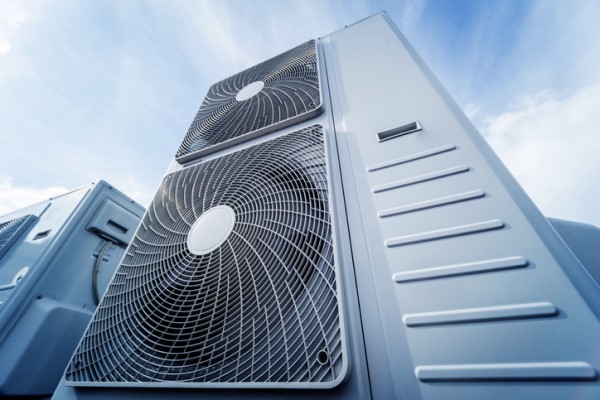How Often Should Commercial Air Filters Be Changed
Replacing commercial air filters regularly can lower your HVAC system’s energy consumption by as much as 15%. Changing air filters often enough is essential if you want your AC system to keep running efficiently.
To be sure that you’re changing your commercial building’s HVAC system regularly enough, there are a few factors to think about first. Understanding how often to replace air filters is essential, so you should have an idea of what you should be aiming for.
So, how often should commercial air filters be changed? Below we’ll tell you everything you need to know.
What Is an Air Filter?
An air filter is an essential part of an HVAC system. It works as a barrier that can help prevent contaminants from entering the HVAC system and circulating around your home.
Once contaminants enter a commercial HVAC system, they can cause damage to it and lead to decreased efficiency. Fortunately, air filters can prevent the movement of contaminants such as dirt, dust, pet hair, mold, and bacteria.
Air filters are usually comprised of spun fiberglass or pleated paper. They’ll also have a cardboard frame that will provide more stability to the air filter.
After some time, air filters will get clogged up and won’t do their job as well. This is why it’s important to change commercial air filters on a regular basis. Doing so will help ensure that the air filters will keep doing their job and will allow your HVAC system to keep functioning at its very best.
How Often Should Commercial Air Filters Be Changed?
As a general rule, commercial air filters should be changed quarterly, at the very least.
Most manufacturers recommend a timeline of 90 days or three months to change an air filter. For any system, this is a good rule of thumb to follow.
However, the exact amount of time you’ll wait to change the air filter should vary based on its manufacturer as well as the conditions of your building. You’ll find that certain types of businesses and commercial buildings will need to have more regular air filter changes than others.
In an office building, for example, it may be fine to change the air filters every quarter. However, if you’ll be changing air filters in a commercial building where industrial work is performed then you’ll likely need to change your air filter much more frequently. You may even need to change the commercial air filter as often as once a week.
It may also be necessary to change an air filter with greater frequency, such as once a week, in a building that serves as a medical facility. In a restaurant, you may want to change your air filters fairly often, ideally every four to six weeks.
Be sure to find out what an HVAC manufacturer suggests when determining how often to change your commercial air filter. You might also want to speak with an HVAC company to get a better idea of what your replacement goals should be as well.
Failing to Replace Commercial Air Filters
If you fail to replace commercial air filters often enough, you may find that your HVAC system starts functioning less efficiently.
When contaminants are allowed to get into your system, it can cause damage. It may lead to the system being strained and needing to use more power. Moving parts may have a hard time functioning and airflow could be restricted significantly.
If you want to keep your air conditioner functioning well for a long time to come, make sure that you replace the air filters often enough. Not only will this lead to a longer system lifespan, but it can save you energy. It can lead to you paying less on utility bills each month, so it can be well worth the effort.
How to Choose Commercial Air Filters
There are a few different things you’ll want to consider when choosing new air filters for your commercial HVAC system.
First of all, if you want to be sure to choose the right HVAC filters for your system, you should choose the right size. Checking the size of your existing air filters or checking the manufacturer’s instructions can help you determine what size you’ll need for your system.
You should also consider the level of filtration that the air filter offers. You should check the air filter’s minimum efficiency reporting value (MERV) rating. A MERV rating can be found on all air filters and can help you get a better idea of their efficiency.
The MERV rating signifies how well an air filter will prevent dust and other contaminants from passing through. You’ll want to be sure to use air filters with the right MERV rating for your particular commercial building.
A higher MERV filter is typically better. Commercial air filters with higher ratings will do a better job of trapping small particles and preventing them from entering your HVAC system. On the other hand, air filters with higher MERV ratings can lead to decreased airflow, so you’ll want to keep this in mind as well.
A MERV rating of 16 or lower is suitable for most residential and commercial uses. However, MERV 17-20 ratings are ideal for applications in which cleanliness is an absolute necessity, such as in doctor’s offices and operating rooms.
Preparing to Change Commercial Air Filters
So, how often should commercial air filters be changed? By now, you should have a better answer to that question.
Generally speaking, you’ll need to change a commercial air filter at least once every 90 days. However, air filters may need to be changed even more often in industrial buildings, medical facilities, and restaurants.
Be sure to consider the manufacturer’s suggestions and speak to an HVAC professional if you want to get a better idea of how often you should be changing the air filters in your commercial HVAC system. You should also consider how your building is being used.
Need help with your commercial HVAC system? Get in touch with us today to learn more about what we can do for you.






